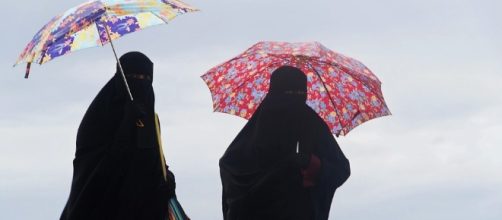The tide of the total acceptance of Islamic culture that has swept Europe over the last two decades seems to be on the turn. It is not difficult for people who wish to practice islam in an inclusive way that respects the laws and traditions of the countries they are entering. These countries that are often affording great opportunities for Muslims and their families that their country of origin could not provide. The problems present when practices that are not appropriate within the new host countries are demanded as rights.
Troubling practices
In the UK for example, the strict rules that are meant to minimise the horrible suffering animals go through when they are slaughtered seem now not to apply universally, with the growing practice of halal slaughter.
Animals are often not properly stunned during this practice and it is becoming commonplace without large-scale debate in Parliament.
In many areas of the UK and other European countries, some areas are becoming ghettoised Islamic communities with no real integration taking place. Female Genital Mutilation (FGM) is another area of concern with the practice widely reported as going on but with almost no prosecutions of the perpetrators. A refusal to afford gay or transsexual people equal rights and respect as demanded by law is another concern with open hostility and contempt often directed against them.
No more masking in public, please
The clearest sign that many areas of Europe are now beginning to challenge the compliance to the changes in culture demanded by Islam, is the evident growing willingness to confront the public masking of women through the wearing of niqabs or burkas.
These items cover either the face or the whole body and face. They are not generally thought to be a requirement of Islam and many millions of Islamic women do not wear them, but they do tend to be worn by the more fundamental elements of the religion or are demanded by men in these male-dominated families.
The practice is accepted in the UK, leading to ridiculous scenes at airports and ports with people sweeping past customs in garments where it is impossible to even tell if they are women or men and recently in a trial of three women accused of serious terrorist offences, with the women facing the judge and court wearing more masking than the Lone Ranger.
Denmark will be the latest European country to ban this practice
Masking will no longer be allowed in public spaces but it is far from alone. Bulgaria, Belgium, France and the German state of Bavaria also disallow the practice, with MP's in Holland prohibiting it in government buildings, public transport and schools among other places.
One member of Denmark's Liberals Ellemann-Jensen put it rather well by explaining it is not a ban on religion, it is a ban on masking. In the UK a YouGov survey carried out in 2016 found a significant majority (57%) of people who responded were in favour of the ban coming into force in Britain, but of course the UK government has shown a tendency to ignore the will of the population whenever it can as demonstrated by the ongoing struggle to complete Brexit.
Why might the mistrust of Islam be spreading?
The surge in anti-Islamic parties and individuals through Europe is unmistakable. France and Austria had elections to determine who would lead the countries, with an anti-Islamic candidate proving the most popular two choices in both countries.
Gert Wilders has a lot of support in Holland. Merkel has found in the most recent elections a slump in her own popularity and the right wing obtaining some power in Germany for the first time since the Second World War. The EU's insistence on imposing refugee quotas from Muslim majority countries has led to open rebellion in Hungry, The Czech Republic and Slovakia.
The Liberals like to paint this as Islamic hatred and some countries follow their lead. They are wrong and make the problems worse. Other than a few marginalised extremists there is no phobia of Hindu's, Buddhists, Sikhs, Christians or Jews (apart from within some hateful swathes of the UK Labour Party). It is not a mindless hatred of anyone that is going on but rather an insistence that anyone entering a country complies with that countries traditions and laws.
It is also common sense and courtesy. It is far easier to give and receive a pleasant greeting and a smile when one person's entire face is not covered with an intimidating black cowl. It removes the barriers to communication and encourages integration which surely has to be good for all of us and something we all want!
Don't they?


